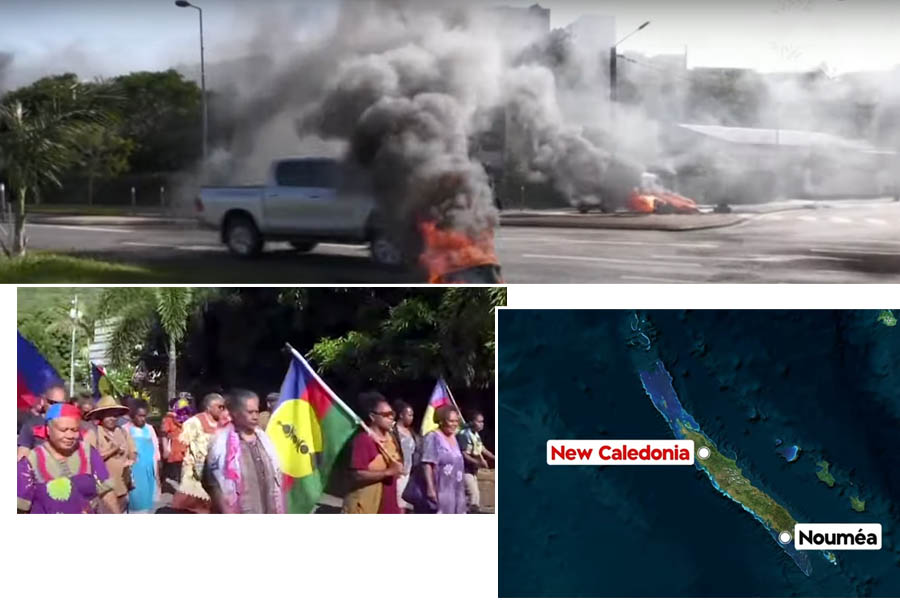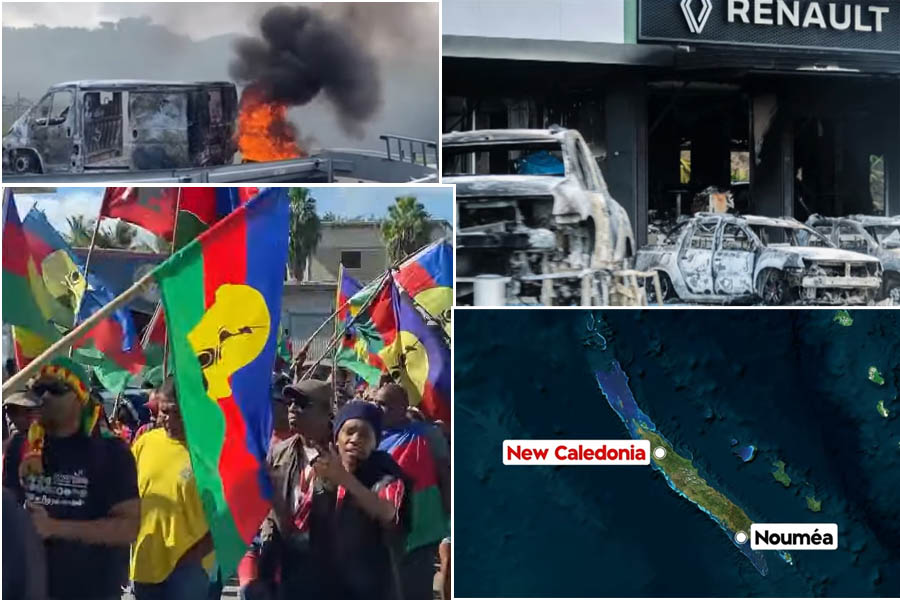
Amidst escalating tensions, New Caledonia finds itself in the grip of unrest as protests against proposed voting reforms turn violent. The French territory, nestled in the Pacific Ocean, has witnessed clashes between demonstrators and security forces, prompting authorities to impose a curfew and ban public gatherings in the capital city of Nouméa.
The catalyst for this turmoil stems from a contentious proposal by France to expand the territory's voter roll, extending eligibility to include French nationals who have resided on the island for over a decade. This move, scheduled for debate in the French parliament, has ignited a firestorm of opposition, particularly among leaders of the Indigenous Kanak population, who view it as a threat to their political influence.
The protests, which have been simmering for weeks, erupted into violence, with reports of burning cars, looted supermarkets, and confrontations between protesters and law enforcement. The situation escalated to the extent that staff at a prison in Nouméa were briefly held hostage before being released, and schools in affected areas were shuttered for safety.
At the heart of the issue lies the delicate balance of power and representation in New Caledonia. The proposed reforms aim to broaden the electorate in provincial elections, potentially diluting the political sway of the Indigenous Kanak, who make up a significant portion of the population. For decades, the electoral lists in the territory have remained frozen, a result of the 1998 Nouméa Accord, which sought to empower the Kanak community but excluded recent arrivals from voting.

The recent clashes underscore the deep divisions within New Caledonian society and the challenges inherent in navigating its complex political landscape. As the French parliament prepares to deliberate on the proposed reforms, the situation remains tense, with authorities grappling to restore calm and prevent further escalation of violence.
The unrest in New Caledonia serves as a stark reminder of the enduring legacy of colonialism and the ongoing struggle for self-determination and autonomy in territories with diverse populations and competing interests. The outcome of the debate over voting reforms will not only shape the future of governance in New Caledonia but also reverberate throughout the wider region, influencing the trajectory of Pacific politics for years to come.
Thank you for reading: globalpostheadline.com | If you want to advertise your Company, Events, Movies, Products, Hotels, Travel Packages Let us know